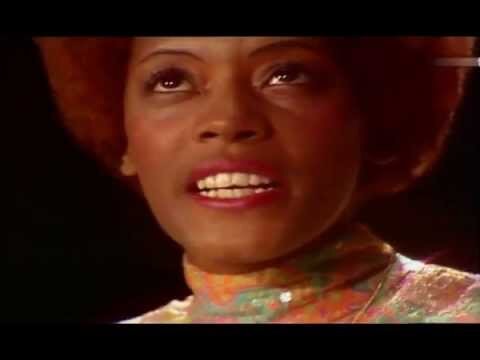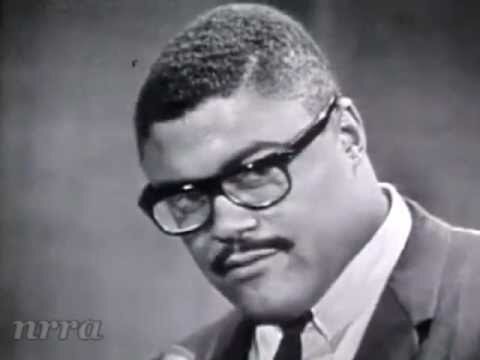
Sunnysoul
Members-
Posts
2,959 -
Joined
-
Last visited
-
Days Won
5 -
Feedback
100%
Content Type
Forums
Event Guide
News & Articles
Source Guidelines and Help
Gallery
Videos Directory
Source Store
Everything posted by Sunnysoul
-
And the release on Emblem by Soul Inc is obviously more common but goes for more and is clearly an inferior version .
-
Thanks Mal - only one shown on popsike at 45 bucks. Is that all one of these is worth ?
-
So ... is the above version which appeared on the Soul Supply LP - and which is far superior to the Emblem 45 release - available on a 7" ???
-
More today than yesterday - The Spiral Staircase
Sunnysoul replied to Aggrolite's topic in Look At Your Box
Here are the boys in action -
Articles: The Post Wigan Years - Northern Soul
Sunnysoul replied to Chalky's topic in Front Page News & Articles
Just need to make a point of correction here: the "scene" in Australia was started in Sydney in '79/80 by Australians born in Australia ...- 140 comments
-
- wigan casino
- northern soul
-
(and 1 more)
Tagged with:
-
If you mean Sam Moore's " Give You Plenty Lovin' " on Atlantic, it most definitely exists ... and two issues of it, pressed at different plants.
-
Some further information on the Donnell Pitman / Love Explosion story. I 've long been curious as to whether there were any other releases on the Arpco label and have now come across this release on Arpco by John Drummer. As you can see from the scans, the two records have different label design and numbering. The common link between the two though is Archie Russell, a long standing Chicago soul producer, probably best known for his production work on Betty Everett's Uni label recordings from the early 70's. Floyd Smith incidentally, who co-produced Love Explosion with Russell, also had a hand in writing several of the tunes on Betty's UNI LP. Russell later produced the Chi Lites 1985 release "Hard Act To Follow" on Nuance Records and the label clearly credits "Archie Russell for Arpco Productions" as co-producer. One can conclude therefore that Arpco was Archie Russell's label with the name Arpco probably derived from the letters of his name: "Archie Russell Productions Co. Does anyone know of any other releases on Arpco? Finally, here is a great bit of rare footage from local Chicago TV show "The Chicago Party" from 1980 featuring the man himself , Donnell Pitman , singing Burning Up. Notice the host introduces Donnell by mentioning that the tune is produced by Archie Russell. https://www.youtube.com/watch?v=gt-r_L9lzEc
-
You could start by getting a hold of the book "Central 1179: The Story of Manchester's Twisted Wheel Club" by Keith Rylatt & Phil Scott.
-
Equally so if it is was a stock copy issue.
-
The 7" release of The Bottle says "Taken from the LP "Doin The Best I Can"." Anyone ever seen the LP ?
-
First Class - They Are First Class - All Platinum LP
Sunnysoul replied to Cbills428's topic in Look At Your Box
Thanks. Very interesting. Your LP would appear to be the first release on All Platinum from 1977. The LP , as you say, is more usually seen as the Sugar Hill label release below from 1980 with the same track listing. Some of the tracks on the LP were clearly recorded before 1977, let alone 1980. None of the tracks, to my knowledge, were released on 7". If you want to let the All Platinum LP go, please let me know !!! -
First Class - They Are First Class - All Platinum LP
Sunnysoul replied to Cbills428's topic in Look At Your Box
How 'bout posting a scan of the LP ? -
Yes it's a white demo but , either way , the Millionaires now reaches the $282.00 US mark , don't 'cha love it. https://www.ebay.com.au/itm/361432703447?_trksid=p2055119.m1438.l2649&ssPageName=STRK%3AMEBIDX%3AIT
-
baby Don't You Weep - Silly Question probably
Sunnysoul replied to Swifty's topic in Look At Your Box
Robb, I would have thought the "Baby Don't You Weep" releases by Fred Bridges and Edward Hamilton owe their genesis to the traditional gospel standard "Mary Don't You Weep". There have been a multitude of songs over the years with the title "Baby/Mary Don't you Weep " , certainly well before the Fred Bridges and Edward Hamilton records, done as slow ballads as well as rousing uptempo and often with the title and lyrics altered in any number of ways. It's a bit clever really of Fred Bridges and Harrison Smith to claim authorship of the song but to be fair to them they weren't the first to claim authorship of such standard gospel tunes. Very much like the numerous versions of that other standard "Wade In The Water". Admittedly Edward Hamilton's record uses the title "Baby Don't You Weep" but the lyrics bear little resemblance to the gospel standard. Anyway here's a short history of the gospel tune Mary Don't You Weep: The song tells the Biblical story of Mary of Bethany and her distraught pleas to Jesus to raise her brother Lazarus from the dead. Other narratives relate to The Exodus and the Passage of the Red Sea, with the chorus proclaiming Pharaoh's army got drown-ded!, and to God's rainbow covenant to Noah after the Great Flood. With liberation thus one of its themes, the song again become popular during the 1950's and 1960's American Civil Rights Movement. Additionally, a song that explicitly chronicles the victories of the Civil Rights Movement, "If You Miss Me from the Back of the Bus", written by Charles Neblett of The Freedom Singers, was sung to this tune and became one of the most well-known songs of that movement. The first recording of the song was by the Fisk Jubilee Singers in 1915. The best known recordings were made by the vocal gospel group The Caravans in 1958, with Inez Andrews as the lead singer, and The Swan Silvertones in 1959. "Mary Don't You Weep" became The Swan Silvertones' greatest hit, and lead singer Claude Jeter's interpolation "I'll be a bridge over deep water if you trust in my name" served as Paul Simon's inspiration to write his 1970 song "Bridge over Troubled Water". The spiritual's lyric God gave Noah the rainbow sign, no more water the fire next time inspired the title for The Fire Next Time, James Baldwin's 1963 account of race relations in America. Many other recordings have been made, by artists ranging from The Soul Stirrers to Burl Ives. Pete Seeger gave it additional folk music visibility by performing it at the 1964 Newport Folk Festival, and played it many times throughout his career, adapting the lyrics and stating the song's relevance as an American song, not just a spiritual. In 1960, Stonewall Jackson recorded a country version of the song, where Mary is a young woman left by her lover on the wedding day to fight in the civil war, and he died in the burning of Atlanta; the song became a hit when it peaked at #12 in Country charts and #41 in Pop charts. In the 1960's, Jamaican artist Justin Hinds had a ska hit with "Jump Out Of The Frying Pan", whose lyrics borrowed heavily from the spiritual. Paul Clayton's version "Pharaoh's Army" appears in "Home-Made Songs & Ballads", which was released in 1961. James Brown rewrote the lyrics of the original spiritual for his 1964 soul hit "Oh Baby Don't You Weep". Aretha Franklin recorded a live version of the song for her 1972 album Amazing Grace. An a cappella version by Take 6, simply called "Mary", received wide airplay after appearing on the group's eponymous debut album in 1988. The song is sung briefly at the beginning of the music video for Bone Thugs N Harmony's 1996 "Tha Crossroads". -
baby Don't You Weep - Silly Question probably
Sunnysoul replied to Swifty's topic in Look At Your Box
No Robb, they really are two different tunes: The Keyman recording : The Minit recording : -
Other side is "I Want It Back Your Love" and the better known side. Either way a superb double sider
-
Seller on this ebay item attributes the track to Archie Bell but , aside from the song intro being vaguely inspired by Tighten Up, the vocal bears little resemblance to Archie Bell. What do others think ? Sound clip is provided with the ebay item : https://www.ebay.com/itm/Archie-Bell-Be-Good-To-Me-c-u-Unknown-Soul-Northern-Crossover-Motown-Tmg-Rar/121722515152?_trksid=p2047675.c100012.m1985&_trkparms=aid%3D222007%26algo%3DSIC.MBE%26ao%3D1%26asc%3D20131230161411%26meid%3Db81b9d038df7429b9d3a350c298f2be1%26pid%3D100012%26rk%3D6%26rkt%3D10%26sd%3D111807259552 If you like it , go ahead and pay 1.5 K for it .... (no, I'm not the seller and in no way associated with the seller!)




